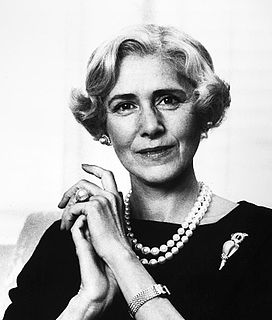A Quote by Clare Boothe Luce
Watergate is the great liberal illusion that you can have public virtue without private morality.
Related Quotes
Public virtue cannot exist in a nation without private, and public virtue is the only foundation of republics. There must be a positive passion for the public good, the public interest, honour, power and glory, established in the minds of the people, or there can be no republican government, nor any real liberty: and this public passion must be superiour to all private passions.
The founders of this nation understood that private morality is the fount from whence sound public policy springs. Replying to Washington's first inaugural address, the Senate stated: "We feel, sir, the force and acknowledge the justness of the observation that the foundation of our national policy should be lain in private morality. If individuals be not influenced by moral principles it is in vain to look for public virtue."
That the foundation of our national policy should be laid in private morality. If individuals be not influenced by moral principles, it is in vain to look for public virtue; it is, therefore, the duty of legislators to enforce, both by precept and example, the utility, as well as the necessity, of a strict adherence to the rules of distributive justice.
In his address of 19 September 1796, given as he prepared to leave office, President George Washington spoke about the importance of morality to the country's well-being: Of all the dispositions and habits which lead to political prosperity, Religion and Morality are indispensable supports. . . . And let us with caution indulge the supposition that morality can be maintained without religion. . . . Can it be that Providence has not connected the permanent felicity of a Nation with its virtue?
He was a foe without hate; a friend without treachery; a soldier without cruelty; a victor without oppression, and a victim without murmuring. He was a public officer without vices; a private citizen without wrong; a neighbor without reproach; a Christian without hypocrisy, and a man without guile. He was a Caesar, without his ambition; Frederick, without his tyranny; Napoleon, without his selfishness, and Washington, without his reward.



































